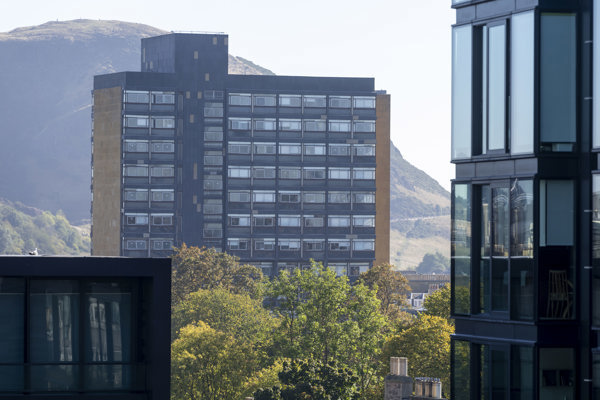Group Proceedings were made available in Scotland in July 2020 following the enactment of the Civil Litigation (Expenses and Group Proceedings) (Scotland) Act 2018. Group Proceedings are broadly equivalent to “class actions” in other jurisdictions, whereby a group of claimants, with similar claims against the same defender, can jointly pursue their case in the Court of Session.
Until this framework was introduced, individuals in Scotland required to pursue claims separately, generally with one “lead” case being chosen to progress through the courts. Examples of this can be seen in the recent well publicised “mesh” and “hips” cases pursued against various medical and pharmaceutical companies.
This article looks at the procedure involved in Group Proceedings and some of the claims which have used the procedure thus far.
The Procedure
The rules for Group Proceedings can be found in chapter 26A of the Rules of the Court of Session. Group Proceedings have their own specific rules, but the procedure is largely similar to that of Commercial Actions in the Court of Session.
The way in which claimants can join a group action in Scotland is on an ‘opt in’ basis. Therefore, those with a claim must actively put themselves forward to join the proceedings. Pursuer law firms generally use internet, radio and televisions advertisements to encourage potential claimants to join.
Group Proceedings may be brought by two or more claimants, led by a “Representative Party” who will act as the leader of the claimant group.
Two applications require to be made to the Court of Session at the outset of the case. Firstly, the claimant group must seek appointment of the Representative Party. Secondly, they must seek the Court’s permission for the claim to proceed as Group Proceedings.
In considering whether to appoint the Representative Party, the Court must consider whether the person put forward is a “suitable person”. In doing so, the Court must take into account the following points:
- The special abilities and relevant expertise of the applicant;
- The applicant’s own interest in the proceedings;
- Whether there would be any potential benefit to the applicant, financial or otherwise, should the application be authorised;
- Confirmation that the applicant is independent from the Defender;
- Demonstration that the applicant would act fairly and adequately in the interests of the group members and that the applicant’s own interests do not conflict with those of the group whom the applicant seeks to represent; and
- The demonstration of sufficient competence by the applicant to litigate the claims properly.
Permission for the claim to be brought as Group Proceedings may be sought alongside the application for appointment of the Representative Party or after this. Along with the application, the claimants must provide the Summons and a register listing all of the group members. This application is then served on the Defender who will have the opportunity to oppose the application.
The main requirement for the court to consider is that the claims must raise similar or related issues in fact or law. The court must also consider if a group claim will be more efficient than separate claims and if there is a real prospect of success.
If these applications are granted, the Court will appoint a judge who will case manage the claim moving forward.
Notable Cases
Since the legislation was introduced, several cases have been granted permission to proceed as Group Proceedings. The most notable of these in terms of procedure is the ongoing case of The James Finlay (Kenya) Limited Group Proceedings.
In this claim a group of over one thousand tea plantation workers in Kenya applied to the Court of Session in Scotland to bring Group Proceedings against their employer, James Finlay (Kenya) Limited, a company registered in Scotland. The claim is based upon the claimants having suffered musculoskeletal injuries and health problems allegedly resulting from poor working conditions.
In the initial stages of the case, the Court refused to allow the firm of solicitors acting for the claimant group to be appointed as the Representative Party. In coming to this decision, the Court noted its concern regarding a potential conflict of interest and the appearance of impropriety arising from the possibility that decisions made by a Representative Party in the proceedings would be influenced by their financial interest.
In May 2022, James Finlay appealed the decision granting permission for the case to be raised as Group Proceedings. They argued Kenyan workers are governed by Kenyan law and that bringing the case in Scotland violates Kenya’s constitution. The Inner House of the Court of Session refused the appeal.
VW Group NOx Emissions
Another well publicised group claim, both in Scotland and in various other jurisdictions, is that of the “NOx Emissions” claims again Volkswagen. It was alleged that Volkswagen installed devices in various models of diesel cars which produced false emission readings. Claims had already been litigated in the USA and England, with settlements being reached. The Scottish proceedings have also reportedly settled, in December 2022 for around £12 million. This demonstrates that, although each individual claimant may have a relatively small claim, the overall recovery can be very high.
Celtic PLC
An application was granted by the Court of Session in March 2022 for a claimant group to bring Group Proceedings against Celtic Football Club for alleged sexual abuse at the hands of the coaches when they were playing for Celtic Boys Club. The procedure remains ongoing with no substantive decision having been made by the Court as yet.
Conclusion
Although Group Proceedings in Scotland remain at an early stage, this is an area which can be expected to develop quickly in the coming years, with some complex and high profile claims already being litigated. We will continue to watch these developments with interest.
This article was co-written by Lydia Dunmore, Trainee Solicitor.


